
I-PrACTISE is an educational and research collaborative between the University of Wisconsin Department of Industrial and Systems Engineering, and the Departments of Family Medicine and Community Health, Medicine, and Pediatrics of the School of Medicine and Public Health. I-PrACTISE gives a formal structure and home for activities which have been ongoing since 2000.
Upcoming Event
Check back soon.
Previous Events
Friday, March 14, 2025
Webex recording: Sepsis, AI and the Centaur
Password: 5pT3YVj3
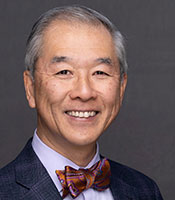 Deploying predictive analytics at the bedside is fraught with difficulty. The math is great, big data is great, deployment is a bear. How might a Centaur model help us detect and successfully intervene to save lives in care of patients with sepsis?
Deploying predictive analytics at the bedside is fraught with difficulty. The math is great, big data is great, deployment is a bear. How might a Centaur model help us detect and successfully intervene to save lives in care of patients with sepsis?
Presenter: CT Lin, MD
Bio: CT Lin MD is CMIO at UCHealth-Colorado, a 14-hospital, 900-clinic system. UCHealth is HIMSS Stage 7 and CHIME’s Most Wired Level 10. He is Professor of Medicine, board-certified in Clinical Informatics, teaches communications and design thinking workshops, has published and gives talks on Generative AI, “Automation Complacency”, EHR Sprints and “the End of Secrecy.” His national awards include “Healthcare IT innovator” and “Electronic Physician of the Year.” He leads a 24-member informatics team. Our mission: “We improve physician and team wellness and effectiveness by building extraordinary relationships and innovative tools.”
Watch Recording of Friday, December 6, 2024
Webex recording: Results and Implications for Generative AI in Education
Password: iCEJMS2s
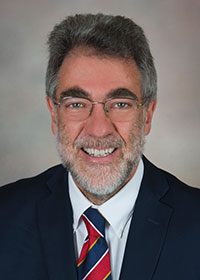 Presenter: William Hersh, MD (Blog)
Presenter: William Hersh, MD (Blog)
Generative artificial intelligence, through the use of large language models, has achieved success in many aspects of biomedicine, such as passing medical board exams, answering clinical questions, solving clinical cases, and summarizing information for patients and clinicians. This has major ramifications for education, potentially undermining student learning and its assessment. The speaker will provide an overview of these accomplishments, describe his own research on the performance of LLMs in a highly subscribed online introductory course in biomedical informatics that he teaches, and discuss the implications for learning and assessment.
Bio: William Hersh, MD is a Professor in the Department of Medical Informatics & Clinical Epidemiology (DMICE) in the School of Medicine at Oregon Health & Science University (OHSU) in Portland, Oregon. Dr. Hersh served as the inaugural Chair of DMICE from 2003 to 2022. He is a leader and innovator in biomedical informatics, both in education and research.
Friday, July 19, 2024 Virtual Colloquium
Engineering Resilient Community Pharmacies (ENRICH): A Patient Safety Learning Laboratory to Improve Chronic Care Management
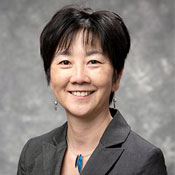
Michelle A. Chui, PharmD, PhD, FAPhA
Presenter Bio: Michelle A. Chui, PharmD, PhD, FAPhA is the Hammel-Sanders Distinguished Professor in the Social & Administrative Sciences Division in the University of Wisconsin-Madison School of Pharmacy and the Director of the Sonderegger Research Center for Improved Medication Outcomes. She has leadership roles in the UW Institute for Clinical and Translational Research including co-director of the TL1 program, and co-director of the Collaborative Center for Health Equity. Her research focuses on applying human factors engineering approaches to improving medication safety in the outpatient setting. She has published over 100 peer reviewed manuscripts and book chapters. She has been continuously funded by AHRQ since 2010. She has mentored over 40 successful trainees, including junior faculty, graduate students, TL1 and KL2 trainees, residents, and pharmacy students.
December 1, 2023 Virtual Colloquium
Designing Excellent Healthcare for the Future: Using Technology to Keep People at the Center
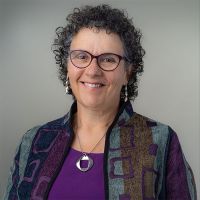
Elizabeth Toll, MD
As health information technology (HIT) integrates rapidly into all aspects of healthcare, it is important to remember that human relationships – between patients and practitioners, within healthcare teams, and among colleagues – lie at the core of why medical professionals are drawn to their work and are closely connected to professional satisfaction. HIT that is well designed and thoughtfully implemented can support these relationships. In this symposium, Elizabeth Toll, MD, primary care physician and Professor of Pediatrics and Medicine at the Warren Alpert Medical School of Brown University, explores how healthcare of the future can use HIT to support human relationships by examining 7 themes, including:
- Relationships Matter More than Ever, and They are Changing
- Addressing Disparities
- Human-Centered Design
- Effective HIT Education
- Clinician Wellness
- Working with Governments, Institutions, and Stakeholders to Support Human-Centered Care
- Shared Data: Ethics, Implications, and Stewardship.
September 8, 2023 Virtual Colloquium
Engineering Primary Care for People with Disabilities

Rupa Valdez, PhD
Professor Rupa Valdez was our inaugural speaker, discussing “Engineering Primary Care for People with Disabilities”. The Disability Community is a historically marginalized group that faces significant disparities in healthcare access, healthcare quality, and health outcomes. In this talk, Dr. Valdez speaks to the ways aspects of primary care can be redesigned to improve both experiences and outcomes for people with disabilities.
Publications
Newsletters
Contact Us
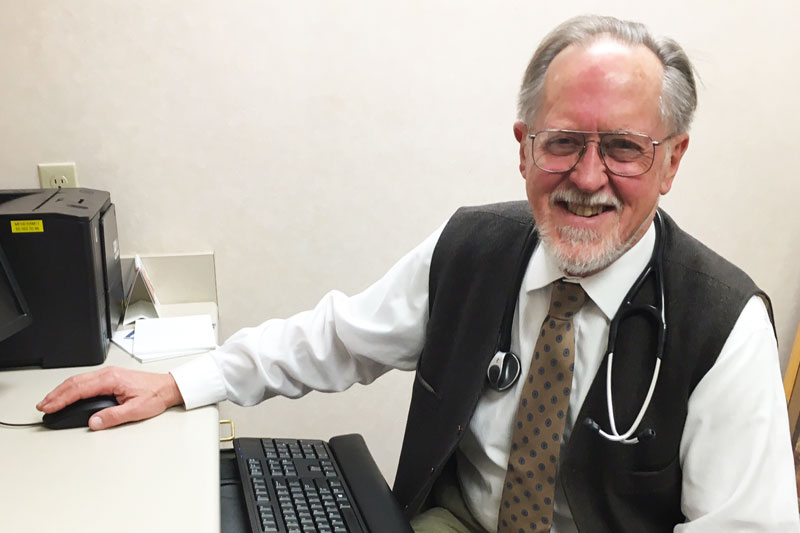
John W. Beasley, MD
Professor Emeritus UW School of Medicine and Public Health, Department of Family Medicine and Community Health
610 N Whitney Way, STE 200
Madison, WI 53705-2700
jbeasley@wisc.edu
